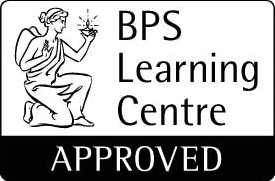In-depth longitudinal training in
Acceptance and Commitment Therapy (ACT) and other Mindfulness-Based Cognitive Behavioural Therapies

Our ACT training is approved by the British Psychological Society Learning Centre for the purposes of Continuing Professional Development (CPD)
Smaller groups, personal feedback
Quality skills training requires smaller group sizes. Ours average at about 16 people which means you can ask more questions than in larger trainings, and have your practice observed directly by a trainer for personal feedback.
ACBS Peer-Reviewed Trainers
All our ACT trainers have been through the quality control procedure offered by the Association of Contextual Behavioural Science, the body that created Acceptance and Commitment Therapy.
Retain habits
People acquire new skills by actively applying new skills. We specialize in training that supports and extends active practice during the training session and beyond. After each two day session you should expect to leave with the confidence to practice multiple new skills.
Acceptance and Commitment Therapy (ACT) Programme
Acceptance and Commitment Therapy (ACT) is a unique empirically based psychological intervention that uses acceptance and mindfulness strategies, together with commitment and behaviour change strategies, to increase psychological flexibility.
ACT: Two-day Introductory Level Skills Intensive
with Henry Whitfield
2025 Dates: (Thurs-Fri):
- 25-26th Sept
ACT: Four-day Intermediate Level Skills Intensive
Lead by: David Gillanders
Co-hosted by: Henry Whitfield
2025 Dates (Thurs-Fri):
-
-
-
16-17th Oct + 20-21st Nov
-
-
Acceptance and Commitment Therapy (ACT) Extended Programme
The purpose of this training programme is to provide a thorough and more in-depth training programme in ACT and other contextual behavioural approaches. The training incorporates regular feedback. Such measurement and feedback is there to focus and deepen the process of learning and skill acquisition. This training programme incorporates ACT, FAP and RFT modules.
Mindfulness-based Cognitive Therapy (MBCT) Programme
MBCT applies traditional forms of mindfulness meditation, but more importantly can be self administered (with instruction/support) and integrated into the client/person’s life. It is also highly suited to group work. Therapies that clients can administer themselves are important because they can continue to be effective, independently of the therapist, with issues that were not a problem at the time of the MBCT programme.
Psychedelic Retreat informed by Acceptance and Commitment Therapy, with follow up integration
- Aimed at mental health professionals but anyone can apply
- with Henry Whitfield, Robert Krause, Tamara Slock & Karlie Shelley
2025 Dates:
- 4-8th June